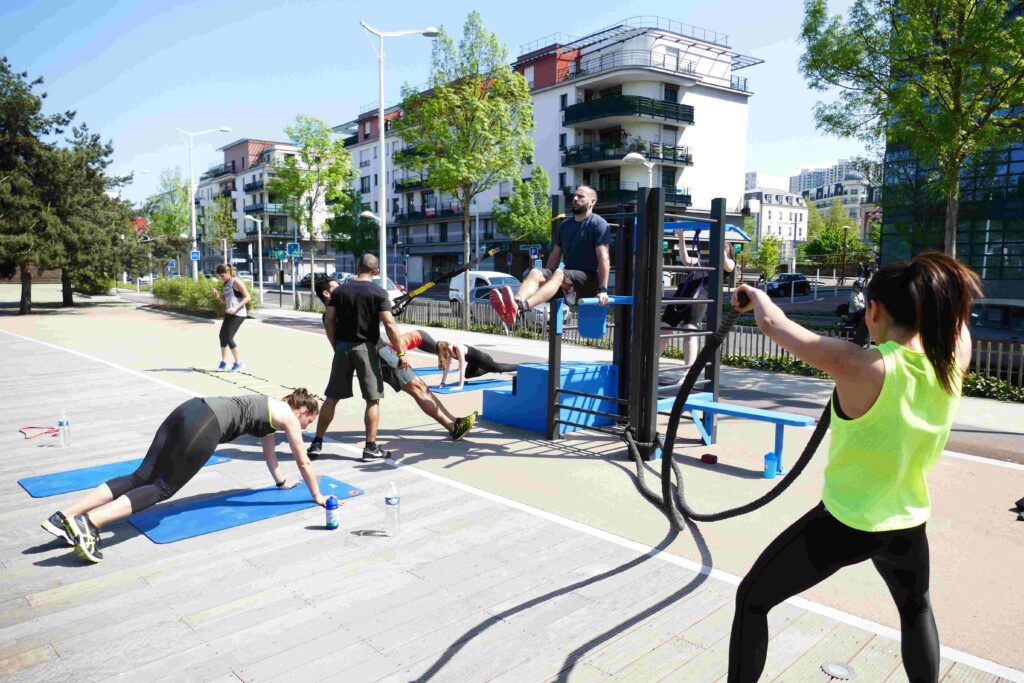Introduction
It’s more crucial than ever to maintain a healthy lifestyle in the fast-paced world of today. Regular exercise is a key component of a healthy lifestyle, offering numerous benefits for both physical and mental well-being. In this article, we will explore the importance of regular exercise and the various ways it can improve your overall health. So, let’s dive in and discover the benefits of regular exercise for better health by incorporating a regular exercise schedule into your life!
The Importance of Regular Exercise
Exercise regularly promotes more than just weight loss and muscle growth. It is a crucial aspect of maintaining optimal health and well-being. Engaging in physical activity regularly can help prevent chronic diseases, improve cardiovascular health, boost mental well-being, and enhance the overall quality of life. By making exercise a priority, you can reap the countless benefits it offers and lead a healthier, happier life.

Physical Benefits of Regular Exercise
Weight Management and Body Composition
Weight control is among the most well-known advantages of regular exercise. Physical activity helps burn calories, leading to weight loss or maintenance. Additionally, exercise helps build lean muscle mass, which contributes to a healthier body composition.
Increased strength and endurance
Regular exercise strengthens your muscles and increases your overall strength and endurance. This allows you to perform daily activities with ease and reduces the risk of injury. Whether it’s lifting heavy objects, climbing stairs, or participating in sports, having strong muscles and good endurance is essential.
Improved cardiovascular health
Cardiovascular health is enhanced by exercise because it strengthens the heart and increases blood flow. Regular aerobic exercises, such as brisk walking, jogging, or cycling, can help reduce the risk of heart disease, lower blood pressure, and improve overall cardiovascular function.
Enhanced immune function
It has been demonstrated that exercise strengthens the immune system and lowers the risk of common illnesses like the flu and colds. Exercise has been shown to boost the immune system, reducing the risk of common illnesses like colds and flu. Regular physical activity increases the production of antibodies and white blood cells, which help fight off infections and keep your immune system strong.
Reduced Risk of Chronic Diseases
Sedentary lifestyles provide a serious risk for chronic conditions like diabetes, obesity, and several forms of cancer. Regular exercise can help reduce the risk of developing these diseases and improve overall health. It also plays a crucial role in managing existing conditions and improving the quality of life for individuals with chronic diseases.
Creating a Workout Routine
To reap the benefits of regular exercise, it’s important to create a personalized workout routine that suits your needs and preferences. Here are some actions to get you going:
- Establish Objectives: Decide what you hope to accomplish by exercising. Whether it’s weight loss, increased strength, or improved cardiovascular health, setting specific goals will help guide your workout routine.
- Find Activities You Enjoy: Choose activities that you find enjoyable and that align with your interests and fitness level. This will make it easier to stay motivated and committed to your exercise routine.
- Start Slowly: If you’re new to exercise or returning after a break, it’s important to start slowly to prevent injuries. As your level of fitness increases, start with lower intensities and shorter durations and work your way up.
- Mix It Up: To keep things fresh and avoid monotony, switch up your training routines. Incorporate a combination of cardiovascular exercises, strength training, and flexibility exercises to target different muscle groups and improve overall fitness.
- Schedule Regular Workouts: Make exercise a priority by scheduling regular workout sessions. Consistency is key to reaping the benefits of regular exercise.
- Listen to Your Body: Observe your physical sensations both during and following physical activity. If you experience pain or discomfort, adjust your routine or seek guidance from a healthcare professional.
- Keep Hydrated: To stay hydrated and sustain peak performance, drink lots of water before, during, and following exercise.

Mental and emotional benefits of regular exercise
Stress reduction and improved mood
Exercise is a powerful stress reliever. Exercise causes the body to produce endorphins, which are organic mood enhancers. Regular exercise can reduce feelings of stress, anxiety, and depression, promoting a more positive and balanced mental state.
Increased energy and mental clarity
Regular exercise increases energy levels and improves mental clarity. It also boosts blood flow to the brain, delivering oxygen and essential nutrients that enhance cognitive function, leading to improved focus, concentration, and overall mental performance.
Boosted Self-Confidence and Body Image
Regular exercise can significantly boost self-confidence and improve body image. As you achieve fitness goals and witness positive changes in your body, you develop a sense of accomplishment and self-worth. Exercise also releases endorphins, enhancing self-esteem and promoting a positive body image.
Better sleep quality
Physical activity is good for sleep. Exercising regularly can help regulate sleep patterns and improve the quality and duration of sleep. By adding exercise to your routine, you can have better, more restful nights and wake up feeling refreshed and rejuvenated.
Social Benefits of Regular Exercise
Opportunities for Social Interaction
Engaging in regular exercise often provides opportunities for social interaction. Whether it’s joining a fitness class, participating in team sports, or going for a walk with a friend, exercise can be a social activity that enhances your social connections and overall well-being.
Enhanced teamwork and cooperation
Participating in group exercises or team sports fosters teamwork and cooperation. These activities require coordination, communication, and mutual support, helping to develop valuable social skills that extend beyond the exercise setting.
Increased Sense of Belonging
Regular exercise can provide a sense of belonging and community. Joining a fitness group or participating in group activities creates a sense of camaraderie and shared goals, leading to a greater sense of belonging and overall happiness.
Tips for adding regular exercise to your daily routine.
Set realistic goals.
When starting an exercise routine, it’s essential to set realistic goals that are specific, measurable, attainable, relevant, and time-bound (SMART). Setting achievable goals helps you stay motivated and track your progress effectively.
Find activities you enjoy.
To maintain a regular exercise schedule, it’s crucial to find activities you enjoy. Whether it’s dancing, swimming, hiking, or playing a sport, choose activities that you find fun and engaging. This will make it easier to stick to your exercise routine in the long run.
Make exercise a priority.
Prioritize exercise in your daily schedule. Treat it as an important appointment with yourself and commit to it consistently. By making exercise a non-negotiable part of your routine, you are more likely to stick with it.
Start slowly and progress gradually.
If you’re starting or getting back into exercise, it’s important to start slowly and progress gradually. Begin with shorter sessions and low-intensity activities, gradually increasing the duration and intensity as your fitness improves. This approach helps prevent injuries and ensures a sustainable exercise routine.
Conclusion
Incorporating a regular exercise schedule into your life offers numerous benefits for improved health and well-being. From physical advantages such as weight management, increased strength, and cardiovascular health to mental and emotional benefits like stress reduction, improved mood, and better sleep quality, exercise is a powerful tool for enhancing overall quality of life. Additionally, regular exercise provides social benefits such as opportunities for social interaction, teamwork, and a sense of belonging. By following the tips mentioned and making exercise a priority in your life, you can unlock the incredible benefits of regular physical activity and enjoy improved health and happiness.




